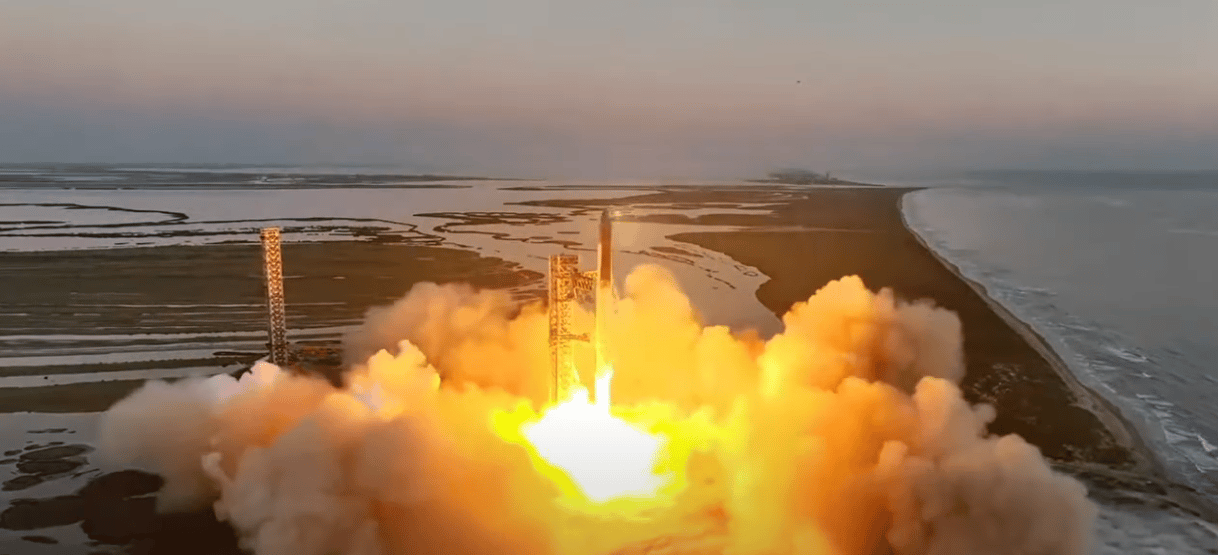In an astonishing bit of space gymnastics, SpaceX has pulled off a true first. It captured a Super Heavy booster at about 7:31 am CST using its own launch tower after delivering a Starship second stage to orbit, followed by a controlled reentry.
Having watched space launches since the Mercury missions, I can honestly say that I’ve never seen one where the successful orbital flight was an anti-climax to the launch – until now. At 7:25 am CST at SpaceX’s Boca Chica, Texas Starbase, the company’s giant Starship rocket lifted off on its fifth test flight. The fact that it didn’t blow up, crash, or suffer some other mishap was a good start, but that’s when history kicked in.
About two minutes and 41 seconds into the flight, Starship conducted a hot staging separation where the second stage fired its six engines while still attached to the Super Heavy first stage. Instead of shutting down its 33 Raptor engines, the Super Heavy only cut down to three engines before separation.
As the Starship second stage ascended into orbit, the Super Heavy did what is now a routine reentry maneuver and made a controlled powered return to its Mechazilla launch tower, now its landing tower. Hovering on three engines that gyrated on their gimbal mountings to shift the booster into proper position, the Super Heavy slid into the waiting “chopsticks” that closed in gently to secure the rocket before final shutdown.
According to a SpaceX spokesperson, this even surprised them because the expectation was that the Super Heavy would either crash or be forced at the last second to abort the landing and dump itself into the Gulf of Mexico. As it is, watching the event had a surreal quality because it looked like something out of an old Thunderbirds episode rather than a real life engineering achievement. It’s even more surreal when you realize that the Super Heavy is larger than a Saturn V first stage.
Meanwhile, the Starship second stage continued on its orbital trajectory, which ended in a soft powered water landing in the Indian Ocean one hour and five minutes after launch. Though it seems like an anticlimax, the landing was especially important to SpaceX engineers, who were anxious about upgrades to the reentry heat shield.

SpaceX
Today’s launch was also surprising because it comes in the shadow of an ongoing feud between SpaceX and the FAA. The agency had previously said that it would not authorize another Starship launch before November and had fined the company US$633,000 for allegedly not getting the proper licenses and permits, while SpaceX founder Elon Musk threatened to sue the FAA for supposedly releasing false statements about Starship’s environmental impacts.
Be that as it may, the next major goal for SpaceX will be to attempt a tower capture of both the Super Heavy and the Starship second stage. If this can be achieved, it opens the way to a launch system with an unprecedentedly quick turnaround time between launches.
Elon Musk explains exactly how Space X’s Mechazilla can catch the Super Heavy booster.
On Sunday morning, Space X successfully caught a 20+ story tall rocket booster.
“This is a custom-built tower with arms that are designed to catch the largest flying and heaviest flying… pic.twitter.com/7rwHnXDk2d
— Collin Rugg (@CollinRugg) October 13, 2024
Source: SpaceX
Source of Article